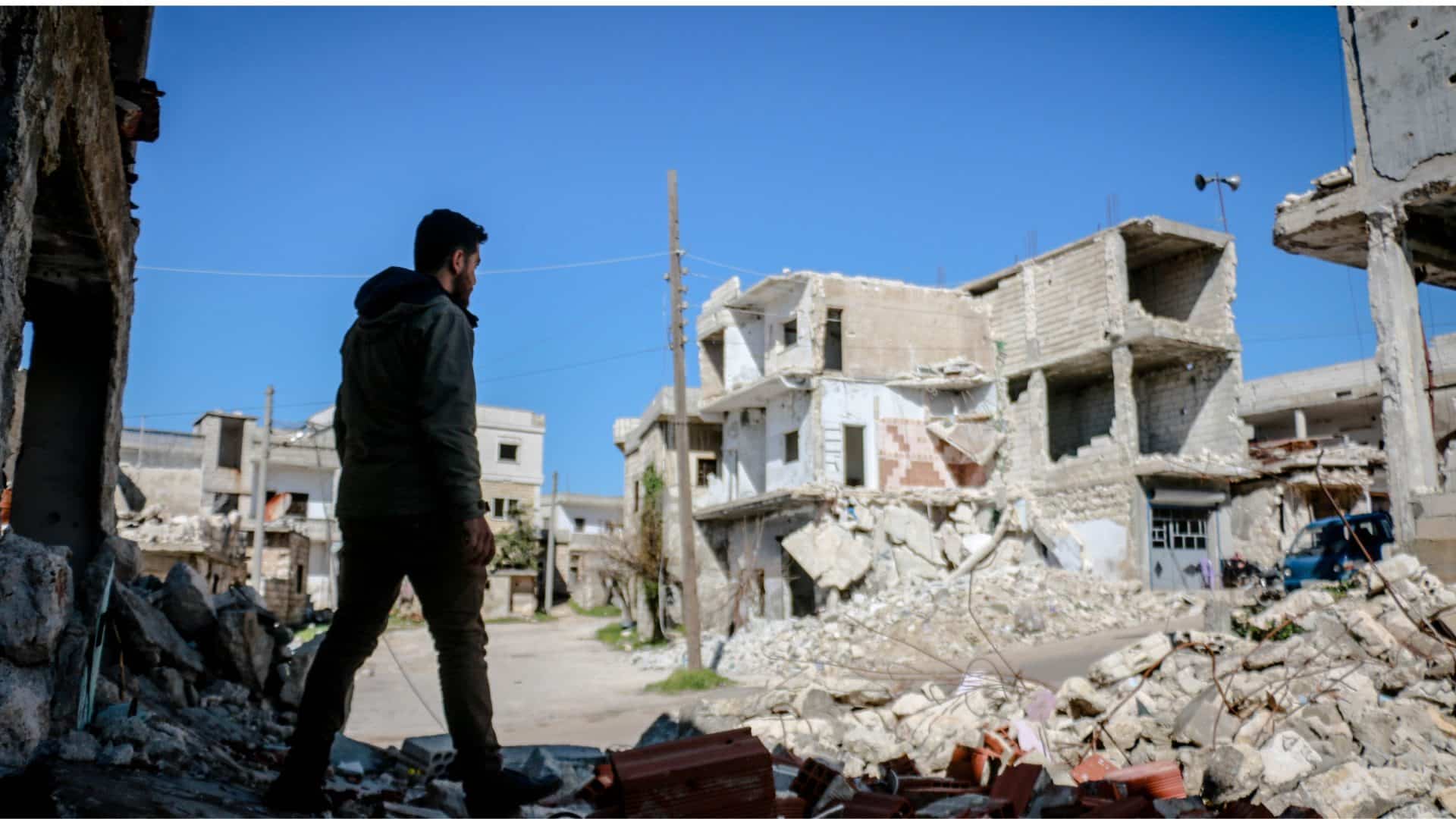Sharaka: Survivor Led Accountability in Yemen
by Christian Labossiere
[Breaking News] has become the standard press headline, and the most frequent phone notification since the turn of the millennium. Reports on the rise of radicalism in the West and unprecedented invasions in the East have inundated the global community with a relentless stream of catastrophes that have not only desensitized us to the realities of war but numbed our collective’s moral reflexes. As protracted conflicts continue to calcify themselves into the ‘status-quo’, those civilians most affected by violent conflict are left to fend for themselves, often competing for a fleeting mention in the next BBC article.
The Case of Yemen
As Yemen completes a full decade of war, Yemenis victims of indiscriminate violence and human rights abuses silently carry a story of collective trauma. UNDP modelling shows that by the end of 2021 the conflict in Yemen had already cost about 377,000 lives.1 UNICEF estimates 2.2 million Yemenis children are currently acutely malnourished2, and UNHCR now counts more than 4.8 million Yemeni civilians uprooted and forced to flee dangerous conditions.3 With no straightforward political settlement on the horizon, war crimes are continually perpetuated, abuses are not being investigated, and the lack of justice mechanisms threaten to cement impunity among violators, sowing the seeds for future violence. Survivor-centered approaches such as Sharaka Survivor-Led Accountability in Yemen (Sharaka) intend to interrupt this cycle of indifference.
Guided by the conviction that resilient civic space is the bedrock of accountable societies, PartnersGlobal (Partners) and PartnersYemen (PY) launched Sharaka project: Survivor-Led Accountability in Yemen in September 2023. “Sharaka,” Arabic for partnership, embodies a simple idea: the people most affected by human rights violations must lead in the pursuit for peace, justice, and accountability, through deliberate participation and informed experiences.
Over the past two years, the Sharaka project has put this principle into practice. Utilizing the data collected through project activities, the Sharaka team drafted “Sharaka Framework for Truth, Justice, and Accountability”. The Framework documents and distills the shared abuses and demands for reparations from a community determined to shift the status quo.
In the making of this framework, Partners and PY have deployed several teams of local researchers to speak with more than 1,000 affected Yemenis survivors— mapping survivor needs and priorities across the region. Survivor-centered dialogues have brought together close to 200 citizens and community leaders to bolster collaboration among Yeminis civil society, individual community members, and the private sector on challenges related to peace, justice and accountability. Crucially, women, youth, persons with disabilities, and communities in need sit at every table, placing the voices of the under-represented at the forefront of the process.
In the coming months, Sharaka expects to distribute up to $40,000 in small grants to Yeminis grassroots civil society organizations (CSOs) and individual activists already working to support survivors of human rights abuses in the region. Moreover, social-media storytelling and targeted advocacy activities are being organized to amplify survivor narratives that have been too often drowned out by geopolitical debate. By investing in local ownership—research, dialogue, micro-grants, and narrative change—Sharaka aims to strengthen the very civic muscles that post-conflict Yemeni communities will, eventually, rely on.
Through is form of engagement, Sharaka expects to equip local CSOs with the tools necessary to hold space in future peace deals and hold future governments accountable to the needs and circumstances of their civilians. As international actors weigh cease-fire proposals and reconstruction plans, Yemeni voices are already articulating what a just peace process must include. In a conflict defined by staggering loss, Sharaka hopes to provide a counter-narrative: partnership, led by survivors, transforms trauma into a platform for rights, dignity, resilience, and—ultimately—durable peace.
- United Nations Development Programme (UNDP). Impact of War in Yemen: Pathways for Recovery. Report 3. Accessed July 6, 2025. ↩︎
- UNICEF. “More Than 11,000 Children Killed or Injured in Yemen.” Press release. New York, December 12, 2022. Accessed July 6, 2025 ↩︎
- UNHCR, Yemen, UN Refugee Agency, accessed July 6, 2025, https://www.unhcr.org/where-we-work/countries/yemen. ↩︎
